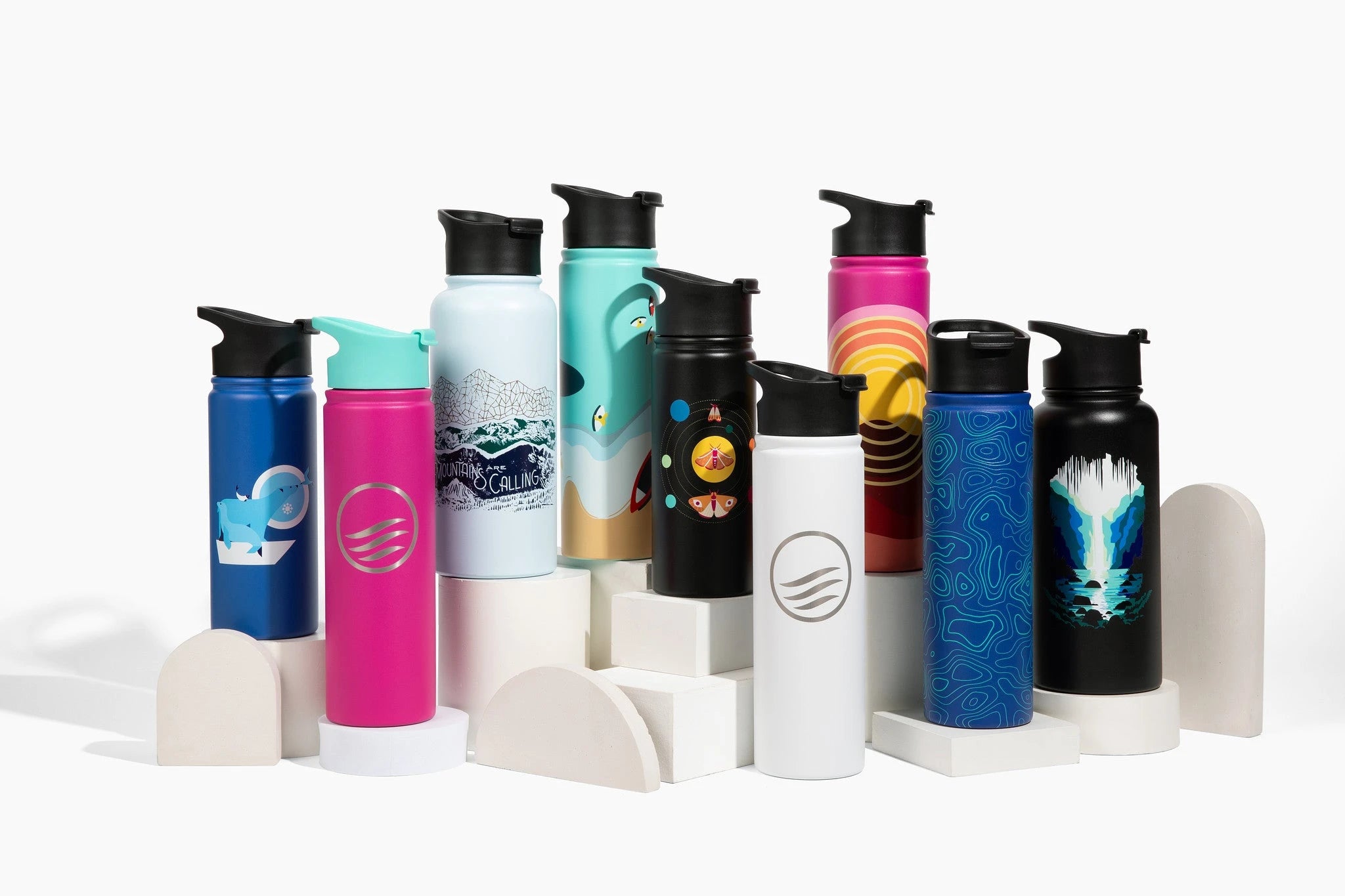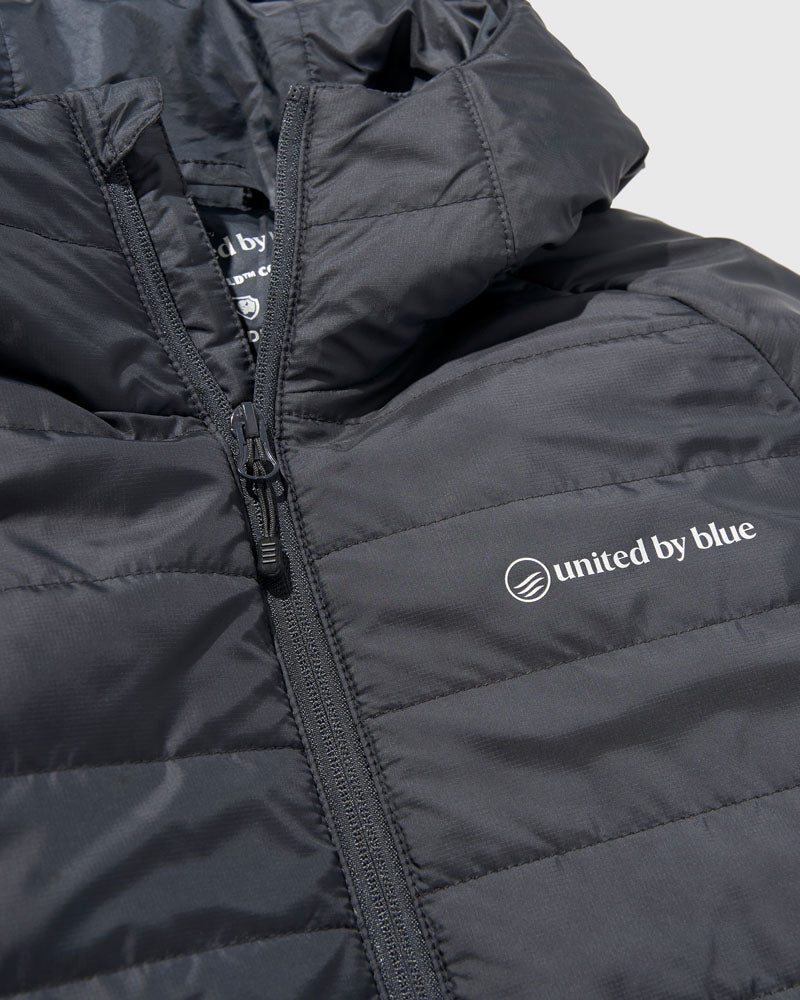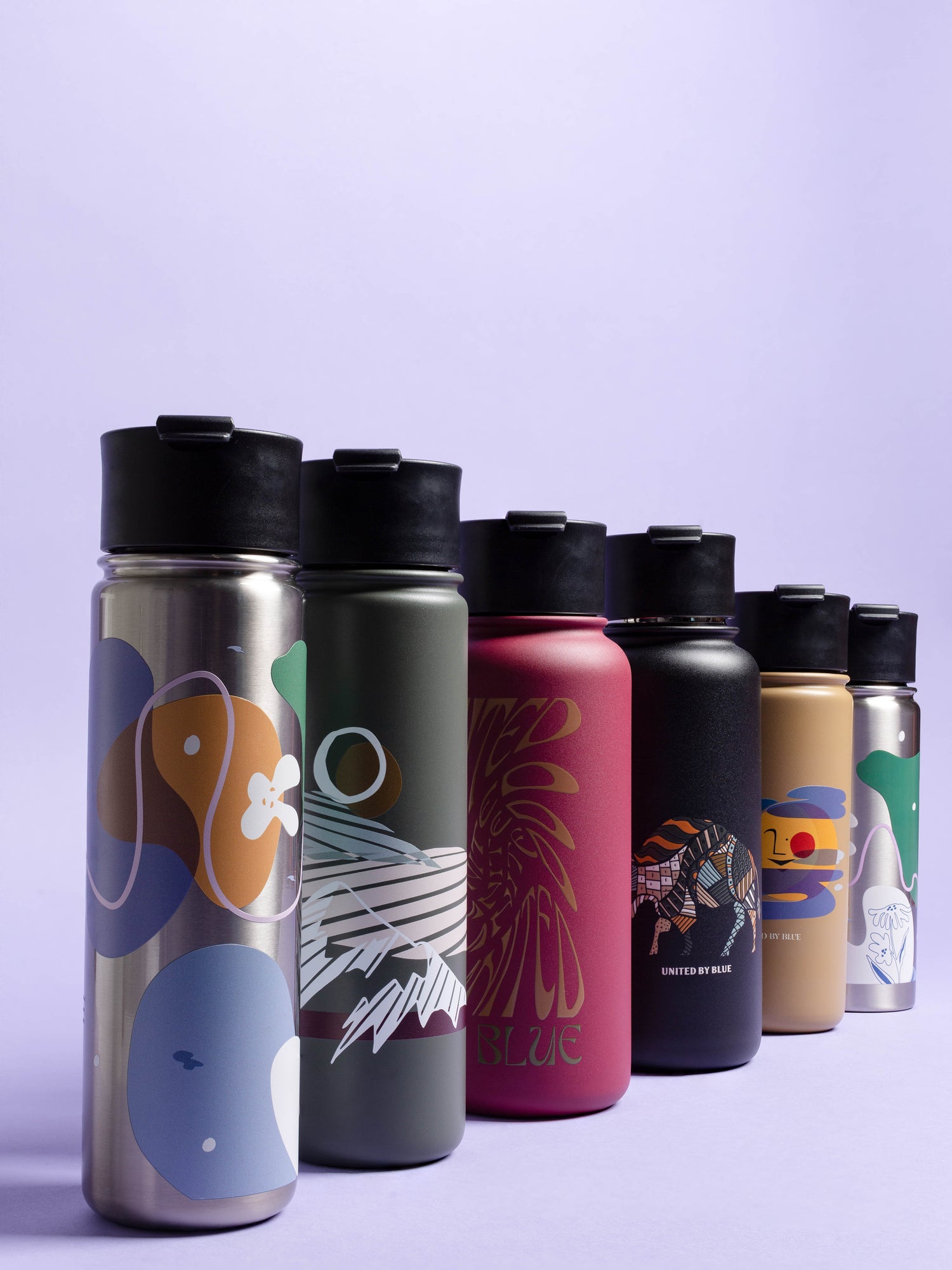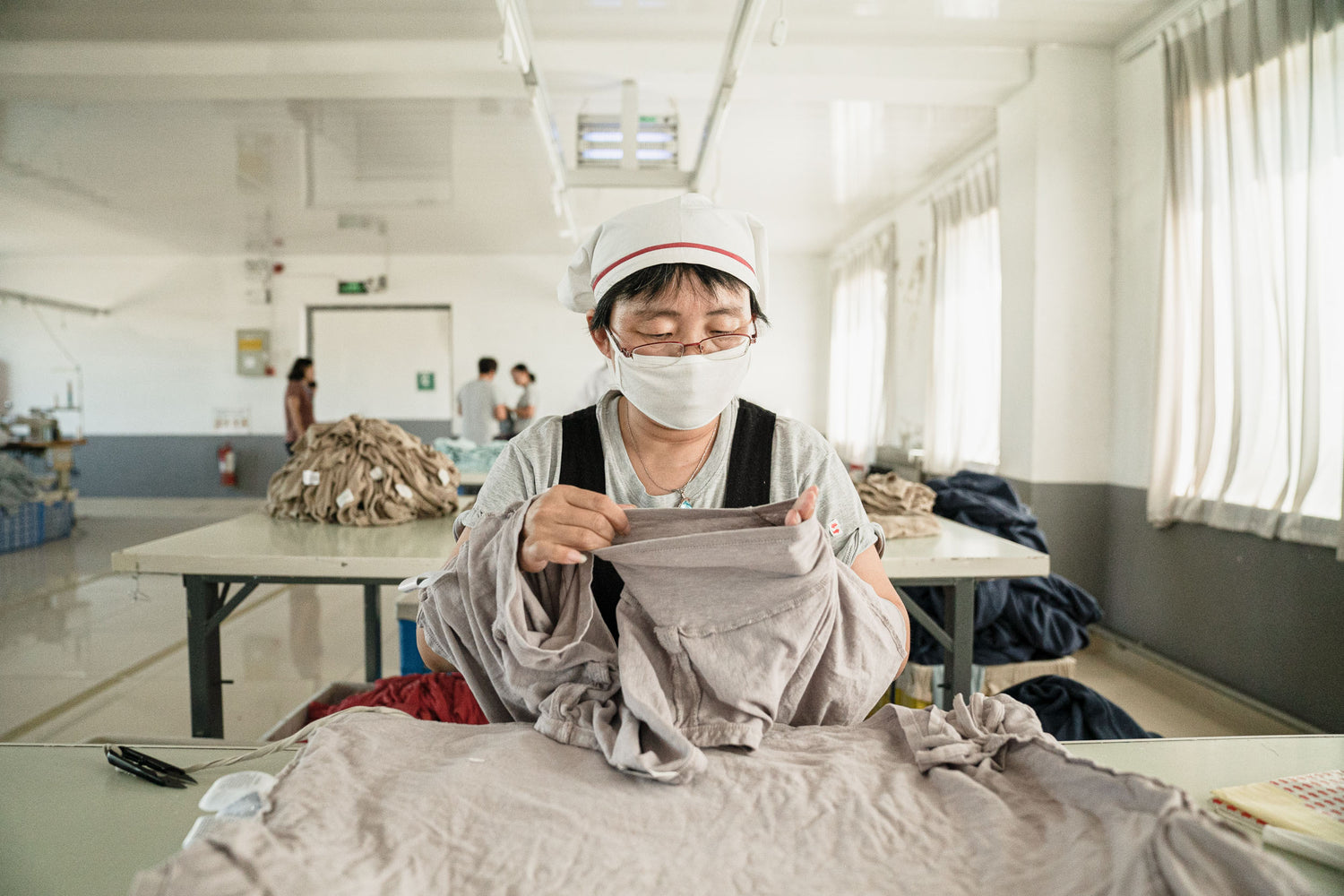United By Blue is committed to working within a supplier and partner network that fosters safe and healthy working conditions and promotes environmental impact management and social welfare. UBB carefully selects business relationships that align with our ethos of practicing responsible and sustainable business that leaves the world better than we found it. The following standards serve as a baseline for the ethics and boundaries that we expect in any working relationship associated with United By Blue. Preference will be given to suppliers that exceed these Code of Conduct Standards and fully embody what it means to be a social and environmental force for good. These standards were drafted in alignment with the principles of the International Labour Organization’s Labor Standards.
- Be Honest and Transparent
Suppliers shall be fully honest and transparent with United By Blue regarding their compliance with these Standards. Documentation may be requested at any time to prove compliance with the Standards. Depending on the supplier engagement, documentation may include full access to facilities, employee records, payroll practices, environmental impact data, and more.
- Practice Non Discrimination
Suppliers should practice active non discrimination in their business environment. Supplier employees or network partners should be considered for positions on the basis of their qualifications and abilities. Suppliers will not discriminate on the basis of gender, race, religion, age, disability, sexual orientation, nationality, political opinion, social group, or ethnic origin.
- Comply with all Laws, Regulations, and Published Standards
Suppliers shall comply with all applicable laws, codes, or regulations of the countries, states, and localities in which they operate. This includes, but is not limited to, laws and regulations relating to environmental, occupational health and safety, and labor and social welfare practices. In some cases, United By Blue social welfare and/or environmental impact standards may exceed the laws, regulations, and/or published standards in the country of work, and the highest standard shall always be adhered to.
- Eliminate Harassment and Abuse
Employees and other individuals associated with the supplier should be treated with dignity and respect. Employers will not use physical or psychological disciplinary tactics. Furthermore, employers will not subject employees to threats of violence, sexual harassment, or psychological abuse.
- Foster High Standards of Occupational Health and Safety
Suppliers shall provide their employees with a safe and healthy working environment in order to prevent accidents and injury to health arising out of, linked with, or occurring in the course of work or as a result of the operation of the supplier. Suppliers shall regularly assess the workplace for hazards and implement appropriate safety systems, controls and training.
- Practice Free and Willing Employment and Hiring
Employers will not use forced labor, including imprisonment, indentured, bonded, or any other form of compulsory labor. Minimum Hiring Age: Employers will not use persons younger than 16 years of age (or who are younger than school compulsory age, if that is older than 16 years) in any of their facilities.
- Practice Freedom of Association
Employers will recognize and respect the legal rights of employees to free association and collective bargaining. Where the right to freedom of association is restricted under law, employers will allow their employees to raise any job-related grievances they may have without penalty or threat of reprisal.
- Implement Balanced Working Hours
Suppliers should maintain a reasonable and legal workload for their employees, never exceeding weekly working hours that are allowed by law. Workers should be entitled to significant, continuous rest periods during their working weeks.
- Wages and Equal Pay
Suppliers must pay at least the minimum wage, set in the country/region of operation, to their employees and associated individuals for all work completed, and equal pay for equal work shall be implemented across genders, races, sexual orientation, marital status, and more. Wages should not be subject to disciplinary processes.
- Zero Tolerance for Human Rights Violations
United By Blue holds a zero tolerance policy for human rights violations within our supply chain, and this policy applies to all suppliers in our network. Suppliers shall not support, maintain relationships with, implement, or otherwise engage with any organization, individual, or cause that has demonstrated a threat to human rights. Suppliers should foster a positive, safe, balanced, and healthy work environment for their employees and actively denounce risks to this working culture.
- Measure and Manage Environmental Impact
Suppliers should comply and/or exceed the minimum environmental standards and regulations in their country of work. In some cases, United By Blue’s requested environmental standards may be higher than the legal requirements.
Suppliers shall not use any substances on United By Blue’s Restricted Substances List in any work completed in association with United By Blue.
- Promote Animal Welfare
Suppliers should implement ethical animal welfare practices. Suppliers must report any potential animal welfare transgressions to United By Blue. Animals associated with United By Blue’s supply chain should benefit from freedom from thirst, discomfort, pain, injury or disease, fear and distress and have the freedom to behave naturally.
- Restrict Unauthorized Subcontracting
Suppliers shall not engage any subcontractor to perform any work for United By Blue products, materials, or components without prior written approval.
- Seek Continuous Improvement
Suppliers are responsible for keeping up with the labor, social welfare, and environmental regulations and industry standards in their region/country of operation. Suppliers should consider these Standards a baseline starting point, and preference will be given to suppliers that exceed these expectations. United By Blue welcomes the opportunity to support our suppliers in their journey to meet and exceed these Standards. In some cases, United By Blue may provide resources and information to help suppliers grow to meet these Standards.
United By Blue will allocate greater financial resources and business selections to suppliers that meet our Preferred Standards:
- Active Inclusionary Practices
Preference will be given to suppliers that not only exceed non-discrimination practices, but also actively implement Diversity, Equity, and Inclusion policies, and engage with anti-racism, women’s rights, cultural and indiginous rights and inclusion, size inclusivity, and more.
- Livable Wages, Benefits
Preference will be given to suppliers who pay a living wage to their employees, determined by the country or region of operation. Livable wages should include industry-competitive benefits provided to the employee.
- Environmental Impact Management
Preference will be given to Suppliers that place a high priority on measuring and managing their environmental impact in their facilities, materials and chemical usage, waste generation, greenhouse gas emissions and water consumption. Strong preference will be given to suppliers that manage and reduce their environmental impact in these areas, and share data on environmental impact management with United By Blue.
- Engage with Community
Preference will be given to suppliers that are positively engaged in their community of work. In practice, this may look like donating to community causes, encouraging employee volunteerism, supporting family and work balance, and participating in environmental and social activism.
- Implement Sustainable Business Practices
Preference will be given to suppliers that not only meet the aforementioned Standards, but also implement and display examples of responsible and sustainable business practices. Such practices are included but not limited to:
- Achieve business certifications for social or environmental sustainability such as WRAP, SA8000, Fair Trade, Fair Wear, B Corp, 1% for the Planet, GOTS, GRS, and more.
- Eliminate or reduce use of virgin materials (plastic, paper, etc.) in production
- Eliminate single-use plastic from packaging, procedural usage, and more.
- Actively promote and foster diversity, equity, and inclusion in the supplier’s industry.
- Reduce and manage the supplier’s carbon emissions.
- Protect the environment in the supplier’s operational procedures through water and energy consumption reductions, reduced waste generation, improved biodiversity practices, and more.






















